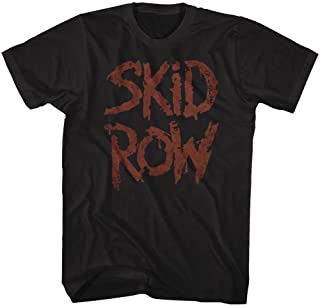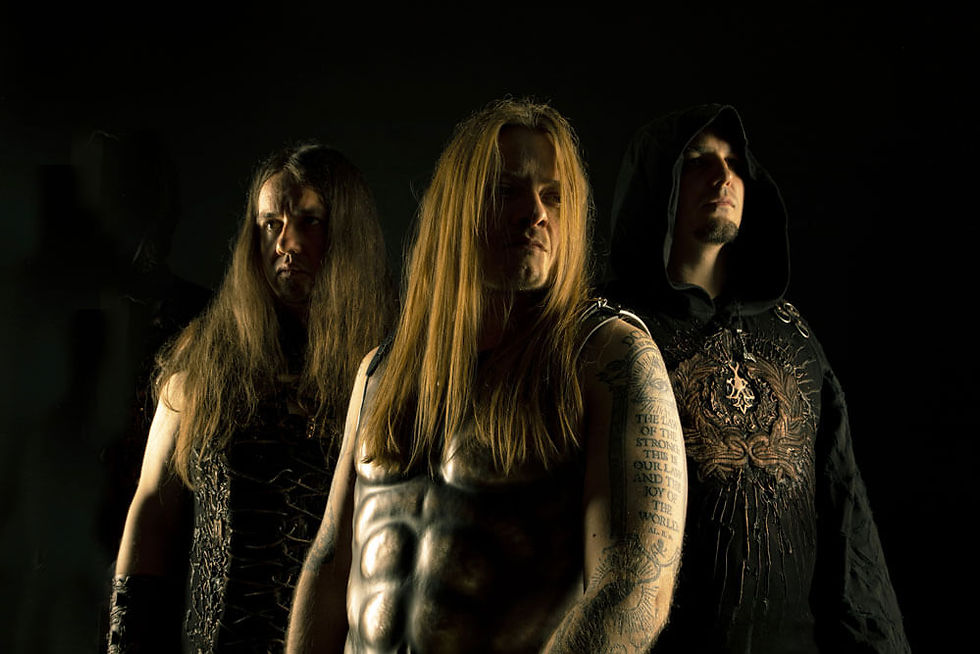QUEEN, it's metal or not metal? We have come to the conclusion that they are Heavy Metal. How?
- Mario Granado

- Sep 22, 2021
- 7 min read
The great discussion, or the eternal discussion if QUEEN is Metal or not Metal!

In my modest opinion Queen, will forever be Metal, as well as for many old school metalheads.
But for that we must understand how we came to this conclusion or opinion. I do not want to impose in any way, but I can affirm that they are Heavy Metal! How? Asked many of you as in a twisted laugh. Lets go back a little in time and talk about HM, between the 70's and the end of the 90's, when there was a category called Hard Rock, or if we want to call it, the grandfather of HM (Heavy Metal).
But to get to HR (Hard Rock), we have to talk about Rock and Roll, Blues, Gospel and Soul.
Blues is by excellence the great culprit for the existence of Rock and Roll. For the most distracted, Rock and Roll was born from the Blues. Hence in my humble opinion, I don't consider Elvis Presley the King of Rock and Roll, but the King of Rockabilly, label given to the whites who played the RnR of the blacks. But why you ask.
The name RnR (Rock and Roll), was born through a radio announcer and DJ, Alan Freed, also known as "Moondog", who used the word R&R when playing a song performed by Sister Rosetta Tharpe, on the WJW radio station, in Cleveland, in which he could not define the type of song since the African-American singer mixed the Blues with the Gospel, making this use the maritime expression used by English sailors when they went to sea, "Let's Rock N' Roll". If Rock n' Roll (RnR) is a music "invented" by the African-American, a white man can never be the King of RnR, but the King of Rockabilly, which was the typical music of young Caucasians from 1952 onwards. Fats Domino, Chuck Berry and Little Richard, came from the black rhythm and blues tradition, made music that appealed to white audiences, and usually are not classified as "rockabilly" nor could they. We should remember that some of Elvis Presley's greatest hits were covers of black music, for example "Only You" or "The Great Pretender" by The Platters.
The Blues meanwhile evolves its musicality, no longer being something traditional to implement something more commercial, like Chuck Berry, this evolution is notorious, and opens a new field that will be baptized as HARD ROCK.
At the end of the nineties it was wrongly said, nowadays proved, that HM was a musical style that would die. I never believed in that possibility, but in the possibility that Hard Rock would have an end to definitely join the Heavy Metal category and stop being a subgenre of it.
Let's look at the evolution of modern Blues. This grandfather of HM has evolved so much, as an example we give Joe Bonamassa or even Gary Moore, that it could be easily confused with Hard Rock, which was not very pleasing to Blues fans.
Due to this similarity already at the beginning of the first decade of 2000, all bands saw themselves overnight going from HR bands to HM bands, of which there were some HR bands that showed their dislike such as Def Leppard and Brian Adams. As an example of bands that suffered the label change we will mention some of them:
Led Zeppelin, AC/DC, Aerosmith, Def Leppard, Brian Adams, Scorpions, The Kinks, Queen, Bon Jovi, Poison, White Snake, etc..
All photos was taken by research on Google all the credits for their authors
From the top Left to the Right : White Snake, Poison, Bon Jovi, The Kinks, Scorpions, Led Zeppelin, Brian Adams, Def Leppard, Van Halen, Aerosmith, AC DC, Queen
QUEEN line-up
Although many guarantee that QUEEN started in 1968, it was not until 1970 that it became the official line-up which lasts until 1991.
Brian May on guitar and Tim Staffell, as vocalist and bassist, schoolmates in 1968 form the band Smile, after posting a flyer that they were looking for a drummer, Roger Taylor, responded positively to the ad.
Tim became friends with Farrokh Bulsara, Freddie Mercury whilst attending Ealing Art College, and introduced him to Roger and Brian in 1969.
With Tim's departure in 1970 the line-up were looking for a new bassist as their line up had May as guitarist, Taylor on drums and Fred Mercury as vocalist and on piano. Meanwhile they continued their performances changing the bass guitar several times. After exhaustive and consecutive auditions to find a bass player who would fit their style of music although eclectic, with strong bases in the Blues, Brian and Roger meet John Deacon in a nightclub.
At the band's request for an audition, they asked John to play "Son and Daughter", a newly created song. The perfectionist performance of the instrumentalist surprised everyone, however his posture was considered too quiet by the other colleagues. At this time, the bass player was witness of discussions among the three, and when he was questioned, he preferred to keep quiet, which, in a way, neutralized the shock of the others.
Thus, we had the official formation of QUEEN known until today.
How the name QUEEN comes about and what happened from 1971 to 1974

In 1970, although May and Taylor had "The Rich Kids" and "The Grand Dance" as options for the band name Fred suggests the name QUEEN - "It's a very strong, universal and immediate name," says Bulsara at the time.
In 1971, due to financial problems Roger enrolled at a Polytechnic School in the Animal and Plant Biology Course. May started teaching Astrophysics, while preparing his Ph. Although he never stopped looking for music moguls, sponsorships and other ways to publicise his work although he was rejected and of no interest to the people who were approached. Through Terry Yeadon, a friend of his, who worked at "De Lane Lea" a new studio in Wembley, the band had the first opportunity to record their first work. As the facility needed sound testing it was necessary for a Rock band to do the testing on site. Queen, through Terry, were chosen, where they recorded a demo with five songs, "Liar", "Keep Yourself Alive", "The Night Comes Down", "Great King Rat" and "Jesus", from which Queen took advantage to send to publishers. But without success.
BUT WHERE DO QUEEN FIT IN AS HEAVY METAL BAND
After a fearful release by EMI, who shared the same opinion as Deacon, they snare "Bohemian Rhapsody" a genuine HM anthem, with an incredible mix of voices.
"A Night at the Opera" is generally considered the best work of Queen's career, mixing their influences of hard rock, pop, progressive rock, heavy metal and other musical genres, as used in "Sheer Heart Attack".
But at the same time, the Punk movement and the emergence of the "Sex Pistols", the specialized media did not wait with negative critics in relation to the QUEEN, which did not have much sympathy for the quartet, mainly for Freddie, as well as Led Zeppelin and Pink Floyd. Queen keeping their eclectic line up but with a strong influence for HD and HM, "A Day at the Races" with an albeit strong outing, led the critics to split between mixed and negative. With Brian May believing the next work would be quite successful and Taylor who was slightly influenced by the rebelliousness of the Punk movement, they composed "Sheer Heart Attack" and "Fight From the Inside".
The recording of the album "News of the World", was in the same studio where the "Sex Pistols" were recording the album "Never Mind the Bolloks, Her's the Sex Pistols", where existed at certain moments a direct conflict between Freddie and Sid Vicious, recalls the vocalist Punk in an interview to the NME magazine, some say that verbal aggression between both vocalists almost got physical contrasting with the passivity between John Lyon and Brian May who preferred to talk about music.
Following the line of HR and HM themes appear such as, "We Will Rock You", "We are the Champions", "Let Me Entertain You", "Mustapha", "Brighton Rock" or "Hammer and Fall", the song "Stone Cold Crazy", for example is cited as one of the first trash metal songs in history, which directly influenced bands like Metallica, having this one a cover. And mentioning the words of James Hetfield, in Nimes, France, in 2009 James says:
"This is a cover of band that inspired us to play music, and tonight, the special band is QUEEN"
Although in 1983 in Brian May's solo work, he invited Eddie Van Halen, with ups and downs and the fatigue, apparent of Fred Mercury's vocal chords, in 1985, in the first edition of Rock in Rio, QUEEN publicly announced to the Brazilian media that this would be the last concert they would play under the Hard Rock label, thus moving the band to a more pop or commercial phase.

Even so with the discussions if QUEEN is or not an HM band after the "disappearance" of HR, Brian May, in his tribute to Freddie Mercury, "The Freddie Mercury Tribute Concert", on April 20th, 1992, proved in a rather clever way that QUEEN has always been an HM band, inviting to play under this label, Robert Plant, Roger Daltrey, Tony Iommi, Def Leppard, Extreme, Guns N'Roses and Metallica, so that no doubts remained. Another thing we should take into our minds is that only Metal bands have a personalised name and logo, well Queen do.
Their music has influenced countless artists. James Hetfield, lead singer of Metallica, has declared himself a fan of the band, and praised Queen's musical eclecticism, stating that "this band could do just about anything". Other artists and groups citing him as an influence include, Iron Maiden, David Lee Roth, Dream Theater, Anthrax, Guns N'Roses, Def Leppard, Van Halen, Foo Figthers, The Darkness, Nirvana, Muse and Royal Blood.
So we can conclude they are Heavy Metal the old Hard Rock category
By Mário Granado Founder CEO & Chairman


















































Comments